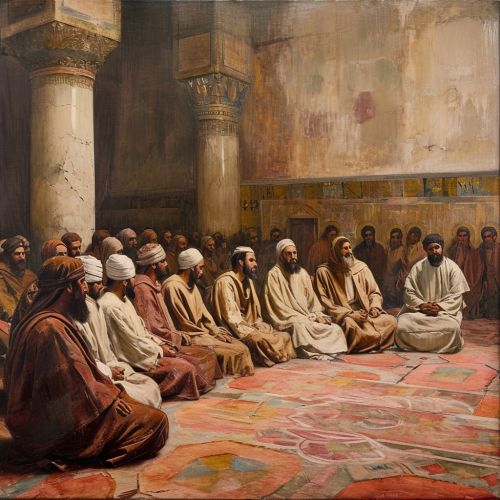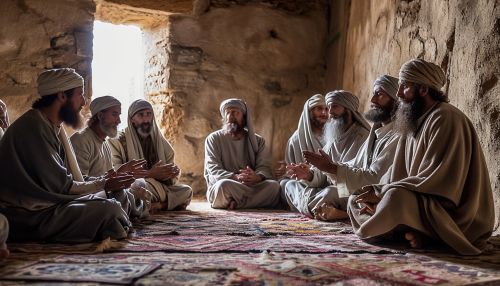Christology
Introduction
Christology, the branch of theology concerned with the nature and role of Jesus, is central to Christian thought. It explores questions such as "Who is Jesus?" and "What is his relationship with God and humanity?" These questions have been the subject of various interpretations and debates within the Christian tradition.
Historical Development
The development of Christology has a rich and complex history, shaped by various cultural, theological, and philosophical influences. The earliest Christological models emerged in the context of Jewish monotheistic beliefs and Hellenistic philosophical concepts.
Early Christology
Early Christology was characterized by a high Christology, which viewed Jesus as divine, and a low Christology, which emphasized his humanity. The New Testament contains both perspectives, reflecting the diverse understandings of Jesus among early Christians.


Councils and Creeds
The first seven ecumenical councils, held between the 4th and 8th centuries, played a crucial role in shaping Christological doctrine. The councils produced creeds, such as the Nicene and Chalcedonian, which affirmed the divinity and humanity of Jesus and his unity and distinction from the Father.
Medieval Christology
During the Middle Ages, Christology was further developed by theologians like Thomas Aquinas and Anselm of Canterbury. They explored topics like the hypostatic union, the relationship between Christ's divine and human natures, and the concept of atonement.
Modern Christology
Modern Christology, beginning in the 18th century, has been influenced by Enlightenment rationalism, historical criticism, and various philosophical and cultural movements. It has also been shaped by dialogue with other religions and engagement with social issues.
Liberal Christology
Liberal Christology, influenced by Enlightenment rationalism and historical criticism, tends to emphasize the humanity of Jesus and his moral teachings. It often interprets Christ's divinity metaphorically rather than literally.
Radical Christology
Radical Christology, influenced by existentialism and postmodernism, questions traditional Christological doctrines and explores new ways of understanding Jesus. It includes perspectives like death of God theology, feminist Christology, and liberation Christology.
Comparative Christology
Comparative Christology engages in dialogue with other religions, exploring similarities and differences in understandings of Jesus. It seeks to promote interfaith understanding and cooperation.
Christological Controversies
Throughout history, Christology has been the subject of various controversies, reflecting differing interpretations of the nature and role of Jesus.
Arian Controversy
The Arian controversy, in the 4th century, centered on the relationship between the Father and the Son. Arius, a priest in Alexandria, argued that the Son was created by the Father and thus not co-eternal. This view was condemned as heresy at the First Council of Nicaea in 325.
Nestorian Controversy
The Nestorian controversy, in the 5th century, involved the nature of Christ. Nestorius, the Patriarch of Constantinople, argued for a clear distinction between the divine and human natures of Christ. This view was condemned as heresy at the Council of Ephesus in 431.
Monophysite Controversy
The Monophysite controversy, also in the 5th century, concerned the nature of Christ. Monophysites argued that Christ had only one nature, which was either divine or a synthesis of divine and human. This view was condemned as heresy at the Council of Chalcedon in 451.
Conclusion
Christology, as the study of the nature and role of Jesus, is central to Christian thought. It has a rich and complex history, shaped by various cultural, theological, and philosophical influences. It continues to be a subject of exploration and debate among theologians and scholars.
